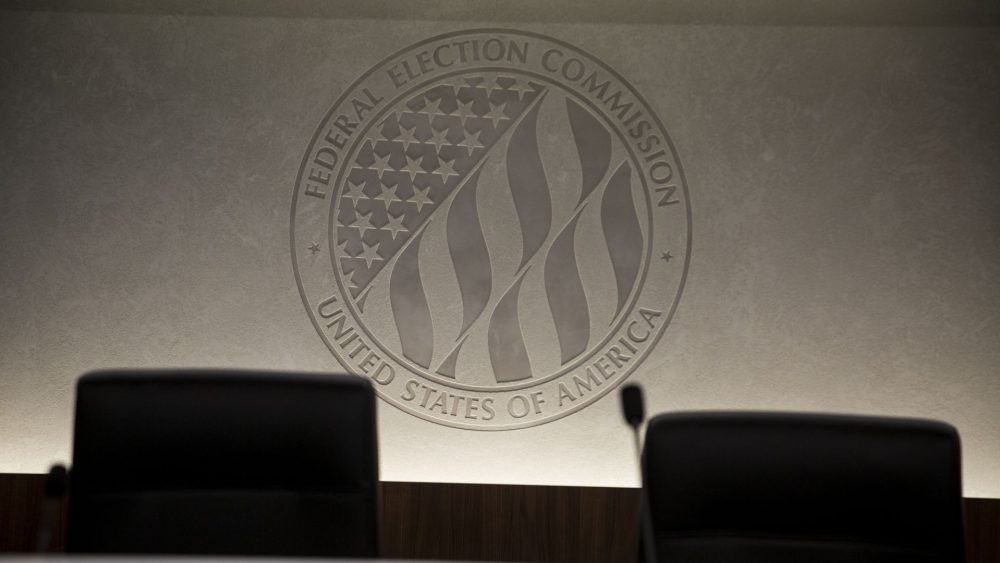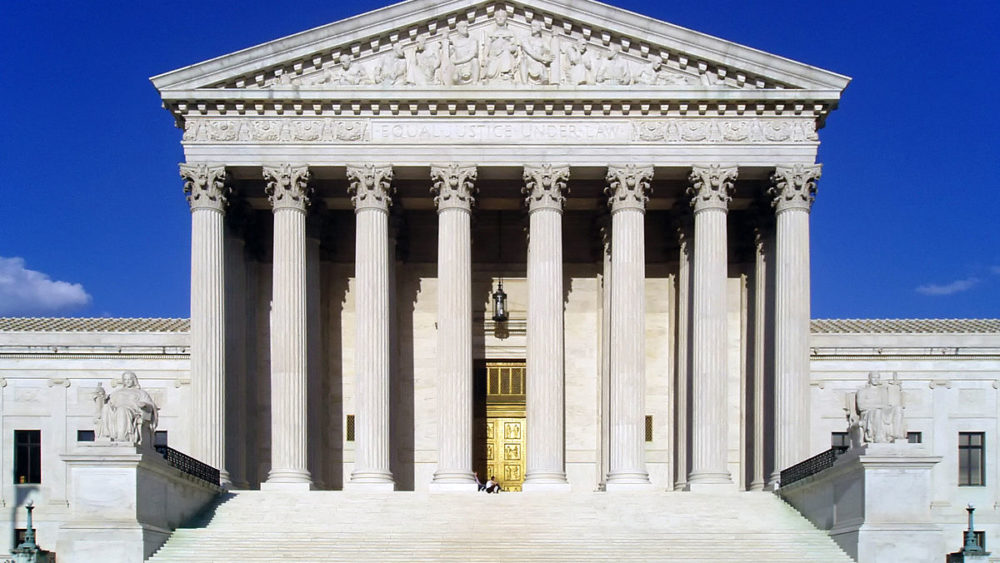February 10, 2023 •
Federal Contribution Limits Increase for 2023-2024 Election Cycle

FEC; Photo: Sarah Silbiger/CQ Roll Call
The Federal Election Commission (FEC) published the 2023-2024 election cycle contribution limits, which have been indexed for inflation. As required by the Bipartisan Campaign Reform Act of 2002, the FEC must adjust certain contribution limits every two years. The individual […]
The Federal Election Commission (FEC) published the 2023-2024 election cycle contribution limits, which have been indexed for inflation.
As required by the Bipartisan Campaign Reform Act of 2002, the FEC must adjust certain contribution limits every two years.
The individual and nonmulticandidate PAC contribution limit to federal candidates has increased from $2,900 to $3,300 for both primary and general elections, allowing for a total of $6,600 for a federal candidate.
The limits on contributions by individuals to national party committees has increased from $36,500 to $41,300 per calendar year.
Individuals may now contribute $123,900 per calendar year to committees of a national political party for presidential nominating conventions, to committees of a national political party for preparation for and the conduct of election recounts and contests and other legal proceedings, and to committees of a national political party for the construction, purchase, renovation, operation, and furnishing of one or more buildings for party headquarters.

United States Supreme Court Building
On May 16, the U.S. Supreme Court struck down a part of federal campaign finance law regulating the repayment of loans from candidates to their own campaigns. Generally, Section 304 of the Bipartisan Campaign Reform Act of 2002 barred campaigns […]
On May 16, the U.S. Supreme Court struck down a part of federal campaign finance law regulating the repayment of loans from candidates to their own campaigns.
Generally, Section 304 of the Bipartisan Campaign Reform Act of 2002 barred campaigns from using more than $250,000 of political contributions raised after the election day to repay a candidate’s personal loans to their campaign committee.
In striking down the law, the majority opinion, written by Chief Justice Roberts and joined by five other Justices, concludes the law “increases the risk that candidate loans over $250,000 will not be repaid in full, inhibiting candidates from making such loans in the first place.”
The majority in FEC v. Ted Cruz for Senate, et al. concluded the law burdens core political speech without proper justification. The majority found the Federal Election Commission failed to demonstrate that the loan-repayment limit serves an interest in preventing quid pro quo corruption.
The dissenting opinion, written by Justice Kagan and joined by Justice Breyer and Justice Sotomayor, argued the burden of the law is minimal and the reasoning behind the enactment of the law remains valid: money given after an election to a candidate’s campaign committee, which will go directly to the candidate as repayment for their loan to the campaign committee, creates a heightened risk of corruption.
Senator Ted Cruz, the plaintiff in the case, loaned his campaign committee $260,000 one day before he was reelected. While the amount was $10,000 over the limit, the campaign committee had a 20-day grace period in which Cruz could have been fully repaid. It has been reported Cruz allowed the repayment to lapse beyond that date in order to establish a legal basis for bringing a challenge to the law.
February 27, 2017 •
Supreme Court Affirms, Without Written Opinion, Lower Court’s Ruling Regarding Campaign Finance Disclosure
Today, the United States Supreme Court affirmed electioneering communication disclosure requirements under the Bipartisan Campaign Reform Act (BCRA). In Independence Institute v. FEC, the Supreme Court affirmed, without a written opinion, a lower court’s summary judgement against Independence Institute, a […]
 Today, the United States Supreme Court affirmed electioneering communication disclosure requirements under the Bipartisan Campaign Reform Act (BCRA).
Today, the United States Supreme Court affirmed electioneering communication disclosure requirements under the Bipartisan Campaign Reform Act (BCRA).
In Independence Institute v. FEC, the Supreme Court affirmed, without a written opinion, a lower court’s summary judgement against Independence Institute, a Colorado based 501(c)(3) tax-exempt organization. Independence Institute argued the BCRA’s disclosure requirements for electioneering communications were overbroad and violated the First Amendment.
Electioneering communication is defined as any broadcast, cable, or satellite communication referring to a clearly identified federal candidate, made within 30 days of a primary election or 60 days of a general, special, or runoff election, and targeted to the relevant electorate.
On November 3, 2016, the U.S. District Court for the District of Columbia had rejected the Independence Institute’s challenge to the BCRA’s electioneering communication provisions and granted the Federal Election Commission’s motion for summary judgment.
State and Federal Communications, Inc. provides research and consulting services for government relations professionals on lobbying laws, procurement lobbying laws, political contribution laws in the United States and Canada. Learn more by visiting stateandfed.com.

